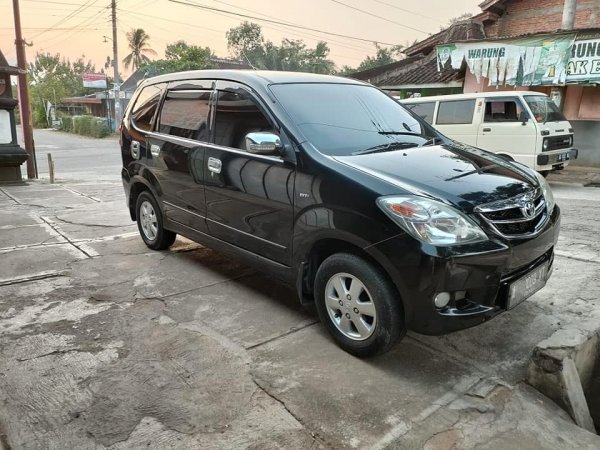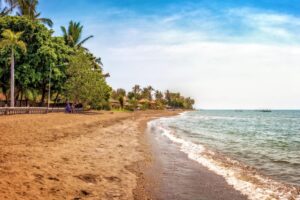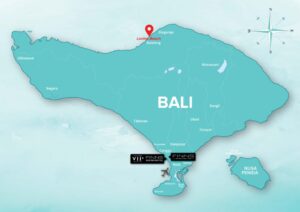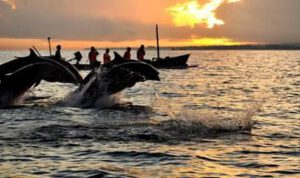Idul Fitri, also known as Lebaran or Eid al-Fitr, is the most significant religious holiday celebrated by Muslims worldwide marking the end of Ramadan, the holy month of fasting. In Indonesia, home to the world’s largest Muslim population, this celebration holds particular cultural significance and is observed with distinctive traditions that blend Islamic practices with local customs.
When is Idul Fitri 2025?
Idul Fitri 2025 is expected to fall around April 1-2, depending on the sighting of the new moon (hilal). As the Islamic calendar follows the lunar cycle, the exact date is typically confirmed closer to the time by religious authorities. The holiday is celebrated for two days in Indonesia, though festivities and the associated travel period often extend longer.
Ramadan Leading to Idul Fitri
Before the celebration of Idul Fitri, Muslims observe the holy month of Ramadan, a period of fasting from dawn until sunset. During Ramadan 2025, which will begin in early March, Muslims abstain from food, drink, and other physical needs during daylight hours, focusing instead on prayer, charity, and spiritual reflection.
Throughout Indonesia, the fasting month transforms daily life with special pre-dawn meals (sahur), evening breaking of the fast (iftar), and increased religious activities in mosques and homes. Markets and shopping centers extend their hours, and special Ramadan bazaars appear selling traditional foods and Idul Fitri necessities.
The Great Annual Migration: Mudik
One of the most remarkable aspects of Idul Fitri in Indonesia is the massive homecoming tradition known as “mudik” or “pulang kampung.” Millions of Indonesians working in urban centers like Jakarta, Surabaya, and other cities return to their hometowns and villages to celebrate with their extended families.
For the 2025 celebration, transportation authorities are preparing for approximately 30 million people to travel across the archipelago. This creates one of the largest temporary human migrations in the world, putting significant pressure on roads, railways, sea routes, and air travel. The government typically implements special transportation management measures weeks before the holiday to accommodate this massive movement.
Traditional Celebrations and Customs
Idul Fitri celebrations in Indonesia include several distinctive elements:
Takbiran
The night before Idul Fitri, Muslims recite the takbir (glorification of God) in mosques, on television broadcasts, and in parades through towns and villages. The sound of drums and chants of “Allahu Akbar” (God is Great) fill the air, creating a festive atmosphere.
Shalat Eid
On the morning of Idul Fitri, Muslims attend special congregational prayers called Shalat Eid, typically held in large mosques or open fields to accommodate the crowds.
Halal Bihalal
Following prayers, Indonesians practice “halal bihalal,” a uniquely Indonesian tradition where people seek forgiveness from one another. This involves visiting relatives and neighbors, starting with the eldest family members, to ask for forgiveness and blessings.
Festive Meals
Special foods are prepared for Idul Fitri, with each region having its traditional specialties. Common dishes include ketupat (rice cakes wrapped in palm leaves), opor ayam (chicken cooked in coconut milk), rendang (spicy meat stew), and various sweet treats and cookies such as nastar (pineapple tarts) and kastengel (cheese cookies).
New Clothes and Home Decorations
It is customary to wear new clothes for Idul Fitri, with many Indonesians donning traditional attire. Homes are thoroughly cleaned and often decorated with colorful ornaments and lights.
Regional Variations
Indonesia’s cultural diversity means Idul Fitri celebrations vary across the archipelago:
- In Java, the “padusan” ritual (bathing in springs or rivers before Ramadan ends) is practiced in many areas.
- In West Sumatra, the Minangkabau people perform the “Balimau” ritual, a traditional bathing ceremony with lime water.
- In South Sulawesi, the Bugis and Makassar communities hold maritime processions called “Lomba Perahu.”
- In Aceh, where Islamic traditions are particularly strong, special performances of Saman dance may be incorporated into celebrations.
Economic and Social Impact
For the 2025 celebration, economists predict a significant boost to the Indonesian economy as spending increases on food, clothing, gifts, and travel. Businesses typically see a surge in sales in the weeks leading up to Idul Fitri, with many companies offering “Lebaran bonuses” to employees.
The holiday also serves as an important social equalizer, with wealthy individuals distributing zakat fitrah (obligatory charity) to those in need, ensuring everyone can participate in the celebrations.
Government Preparations
For Idul Fitri 2025, the Indonesian government will implement special measures including:
- Extended public holidays (typically 1-2 weeks for government employees)
- Special traffic management on major routes
- Price controls on essential goods
- Enhanced security in public areas
- Special arrangements for public transportation
Idul Fitri remains a profound expression of Indonesian cultural and religious identity, blending Islamic traditions with the archipelago’s rich heritage. Whether celebrated in bustling cities or quiet villages, the spirit of forgiveness, gratitude, and community continues to make this holiday one of Indonesia’s most beloved celebrations.






